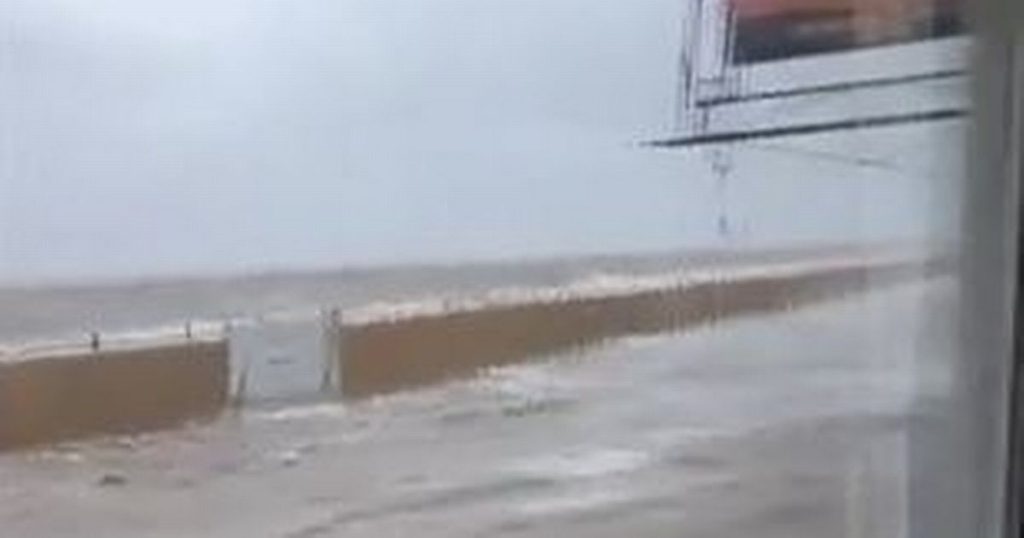Staff at Tanskeys Bistro in Merseyside had to be rescued by a lifeboat crew when floodwaters from high tides flooded the road outside, leaving them stranded. The Met Office had issued a yellow weather warning for high winds, exacerbating the situation. The café staff filmed the parade and road completely covered with water, with bystanders capturing cars being moved by waves. The manager of the bistro lamented the failure of the £20m flood defence wall that was supposed to protect seafront properties in the area, stating that it made the situation worse by trapping water against buildings. Despite the staff’s initial hope that the flooding would subside, it became stronger, requiring rescue by the RNLI.
The flooding incident in West Kirby highlighted the impact of adverse weather conditions and the challenges faced by coastal areas in dealing with natural disasters. The construction of the sea wall in 2023 aimed to provide protection against flooding, but its design flaws were exposed during the recent incident. The high winds and high tides resulted in water breaching the floodwall, causing widespread flooding in the area. The local councillor responded to public outrage about the wall’s effectiveness, explaining that its primary purpose was to dissipate wave energy rather than stop water altogether. The incident underscores the need for effective flood prevention measures in vulnerable coastal regions.
The Met Office had issued a yellow weather warning for high winds, indicating the potential for hazardous coastal conditions and travel disruptions. The combination of strong winds and high tides led to flooding at various locations along the coast, including West Kirby. Wirral Council reassured the public that flood defences were being assessed in collaboration with the Environment Agency to mitigate and minimize damage in the affected areas. The precautionary measures advised residents and visitors to avoid coastal areas during stormy weather conditions to ensure their safety.
The response to the flooding incident involved a coordinated effort between local authorities, emergency services, and rescuers to ensure the safety of those affected. The RNLI played a crucial role in rescuing the stranded café staff, highlighting the importance of emergency services during such natural disasters. The public’s concern about the effectiveness of flood defences and the need for better infrastructure planning and maintenance were raised in response to the incident. The incident serves as a reminder of the unpredictable nature of weather events and the challenges faced by coastal communities in adapting to climate change impacts.
The community’s resilience and resourcefulness were evident as they navigated the aftermath of the flooding incident and worked together to address the immediate challenges. The public outcry over the failed flood defence system indicated a need for greater accountability and transparency in infrastructure projects aimed at protecting vulnerable areas. The incident also raised awareness about the evolving climate risks faced by coastal regions and the importance of proactive measures to mitigate the impacts of extreme weather events. Overall, the incident sparked discussions about the need for improved disaster response mechanisms and enhanced resilience strategies to safeguard communities in the face of climate change.


